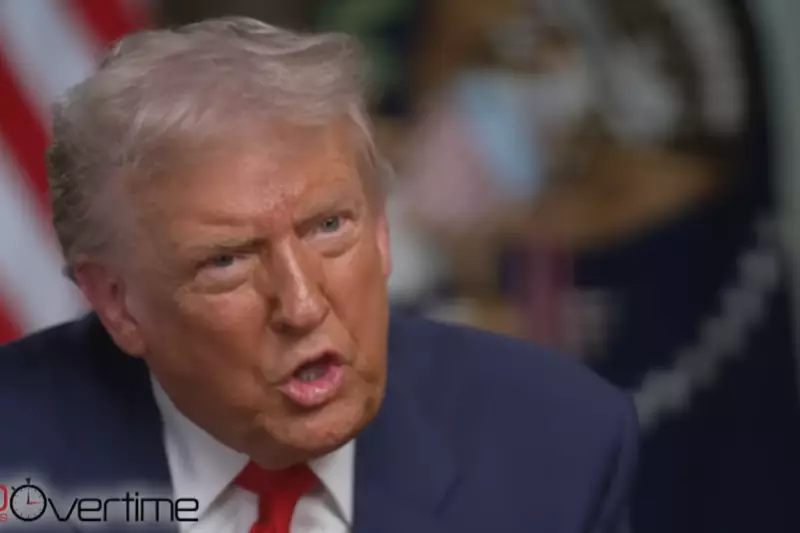
In a stunning display of political theatre, former President Donald Trump dramatically cut short his highly anticipated interview with CBS's 60 Minutes, subsequently releasing the raw footage on his social media platforms in direct violation of network agreements.
The Interview That Exploded
The confrontation unfolded when veteran journalist Lesley Stahl pressed Trump on contentious topics including his handling of the COVID-19 pandemic and his recent comments about QAnon supporters. According to sources familiar with the taping, the atmosphere grew increasingly tense as Trump challenged the direction of questioning.
"I'm not going to let you do this," Trump reportedly told Stahl during one particularly heated exchange, setting the stage for his eventual decision to walk away from the interview entirely.
Social Media End Run
In an unprecedented move that caught CBS executives completely off guard, Trump posted substantial portions of the unaired interview to his Facebook and Twitter accounts. The 37-minute video appeared online just hours after the contentious taping concluded, effectively bypassing the network's editorial control and production process.
Media analysts suggest this represents a sophisticated understanding of modern communication channels, allowing Trump to present his narrative directly to supporters without journalistic filtering.
Historical Context of Confrontation
This isn't the first time Trump has clashed with 60 Minutes. His 2016 interview with the same program featured similar tensions, though it didn't culminate in such dramatic fashion. The pattern reveals Trump's consistent approach to media interactions: challenge perceived bias head-on and control the narrative through alternative means.
Current White House correspondent Bari Weiss commented on the incident, noting that "this reflects the ongoing transformation of political communication in the digital age, where traditional media gatekeepers are increasingly circumvented."
Broader Political Implications
The timing of this confrontation carries significant weight, occurring as speculation mounts about Trump's potential 2024 presidential run. Political strategists are closely watching how such incidents play with both his base and undecided voters.
The incident also raises important questions about the future of political journalism and whether traditional interview formats can effectively navigate today's polarized landscape.





